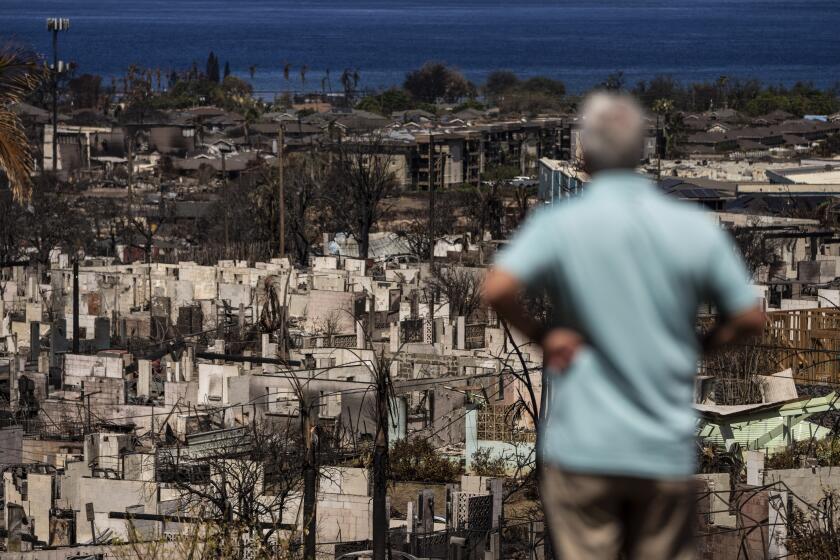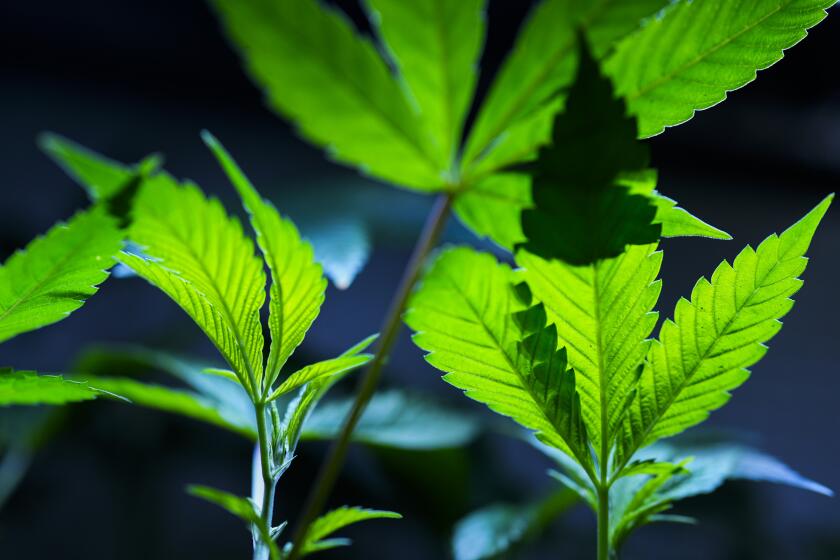Taking Classes One Day at a Time
Ahmad Amira and his friends in this battered city just want to finish their senior year of high school, a goal such bright, engaging boys might once have taken for granted. At the moment, though, he has a more prosaic view of the future.
“Our first ambition is to survive,” said Ahmad, 17, as he and half a dozen boys his age stood in an alley that snaked between old stone houses.
Just getting to school has become more of a challenge than any academic subject since a Palestinian uprising, or intifada, began two years ago. Israel responded with a military occupation that has featured round-the-clock curfews.
On Thursday, Israeli media carried an estimate from UNICEF that 226,000 Palestinian children, about one-quarter of the total, were unable to get to their schools during the first month of the school year, which began Sept. 1. At least 580 schools were closed, primarily because Israeli curfews made it illegal for anyone to leave their homes in the largest West Bank cities. In Nablus, which has been particularly hard hit, a 24-hour curfew was in effect for 23 days in September.
“You can imagine the frustration,” said Pierre Poupard, UNICEF’s special representative in the occupied territories.
At the beginning of the school year, parents and teachers in some West Bank cities banded together and organized small, ad hoc schools that typically met in homes or businesses where children from the immediate neighborhood could learn.
Until recently, Ahmad attended such a school, which convened daily in an old bakery a couple of blocks from his house. In a bare, high-ceilinged room with thick stone walls and a concrete floor, high school classes were offered to nine boys and nine girls in physics, chemistry, literature and English, all taught by volunteers who lived nearby.
Organizers could find no teachers for biology, religion or Arabic grammar, so those classes--ordinarily part of the Palestinian curriculum--were not offered.
“It’s more or less like school, but without the atmosphere of school,” said one boy, Wasim Bolos, 17.
Two weeks ago, parents in Nablus decided that their children would be better off defying the curfew and going to their regular schools, so most of the underground classrooms were closed. In recent days, the Israeli military has decided to relax the curfews in some cities to allow children to attend school legally.
That is a step in the right direction, said the UNICEF’s Poupard. However, he added, the situation is fluid. Generally, curfews are tightened after attacks against Israel, such as the suicide bombings that have claimed more than 250 Israeli lives in the last two years.
It is difficult to fully assess how the chaos of the last two years has harmed Palestinian students. Kirsten Zaat, a spokeswoman for UNICEF, said a study of the 2000-01 school year--the first of the current intifada--showed that the grades of students in schools administered by the United Nations Relief and Works Administration had suffered but that those in schools administered by the Palestinian Authority had not.
However, she said, U.N. officials believe that the reason is that teachers in the Palestinian Authority schools had compensated by grading more leniently.
“As far as we’re concerned, anecdotally, there is a decline in performance,” Zaat said.
Nader Atallah Wahbeh, a researcher with the Qattan Center for Educational Research and Development in the West Bank city of Ramallah, said he fears that student performance is suffering not just because schools are often closed but also because children are too distracted to pay attention even when classes are held.
“Children are having difficulty concentrating and getting back into regular classroom life,” he said. “They are disturbed.... Also, they feel that the subject matter is sometimes irrelevant. Teachers have no techniques to make the subject matter relevant to the conditions they are living under.”
His organization, which focuses on teacher training, has been trying to help teachers deal with the situation, he said. It has urged teachers to set aside a few minutes every morning to let their students talk about their fears and concerns, in the hope that they then will be better able to focus on learning.
During an informal discussion, Ahmad and his friends spoke of yearning for a life free of fear or violence. They also smiled broadly at mention of recent suicide bombings, including one in Tel Aviv that killed seven people, including the bomber.
“When people have no other choice, this is what they end up doing,” Ahmad said.
They were asked: Are they at all optimistic about the future?
Ali Khalili, 17, a tall, thin boy with a black goatee and hooded brows, answered for the group. “The way we live today,” he said, “we don’t have hope for anything. When they lift the curfew for a few hours every week, that’s what we look forward to. We can’t look any farther than that.”
More to Read
Start your day right
Sign up for Essential California for news, features and recommendations from the L.A. Times and beyond in your inbox six days a week.
You may occasionally receive promotional content from the Los Angeles Times.






